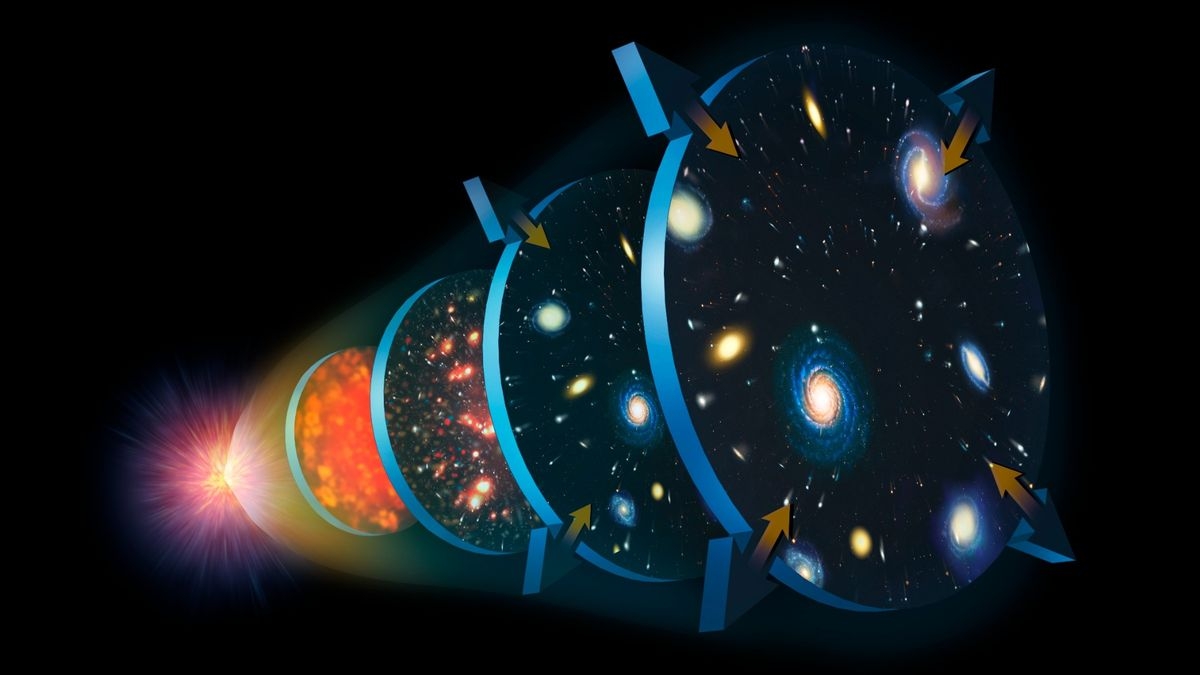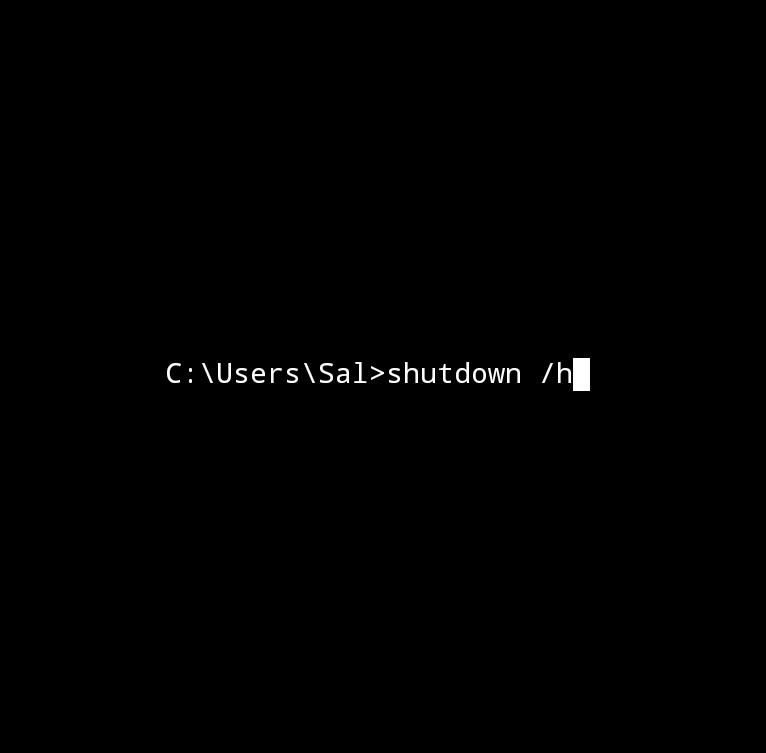Astronomers have used the James Webb and Hubble space telescopes to confirm one of the most troubling conundrums in all of physics — that the universe appears to be expanding at bafflingly different speeds depending on where we look.
This problem, known as the Hubble Tension, has the potential to alter or even upend cosmology altogether. In 2019, measurements by the Hubble Space Telescope confirmed the puzzle was real; in 2023, even more precise measurements from the James Webb Space Telescope (JWST) cemented the discrepancy.
Now, a triple-check by both telescopes working together appears to have put the possibility of any measurement error to bed for good. The study, published February 6 in the Astrophysical Journal Letters, suggests that there may be something seriously wrong with our understanding of the universe.
Yesssss I yearn for new physics
The prospect of irregular and unpredictable physics gives me anxiety
With the universe is not being locally real, and now this… Oh man. Exciting times for sure.
Yes, discovery is awesome, and this is some crazy shit— it’s just that I prefer that the the rules that govern time and space make sense, lol.
It makes sense — we just don’t understand it yet 😀
Fine
It’s turtles all the way down.
I predict bubbles warping time but not space, thus distorting the apparent speeds of objects we see through them. Star Trek taught me that anything is possible. 😆
And just imagine the new fields of math such a discovery would create…
“I’m just going to round it anyways” - Engineering
The Intel floating-point math error strikes again.
If something warps time, doesn’t it inherently warp space, and vice versa?
Normally yes, but if an exception was found then that too would fundamentally change what we think we know. I doubt it will come down to anything quite that simple, but on the other hand gravity is one of those forces that we still don’t completely understand and when dealing with things on a galactic scale perhaps this new observation will start to crack open that particular mystery. It’s easy to speculate at this point, but really my hope is that this will lead to a better understanding of something huge. I think the most boring outcome of this would be something like “oops we made a mistake in our math.”
With the universe is not being locally real
What do you mean by this?
This can explain it better than I’m able to:
https://www.scientificamerican.com/article/the-universe-is-not-locally-real-and-the-physics-nobel-prize-winners-proved-it/Sometimes popular science goes a bit too far. Entanglement of particles and the fact that hidden variables don’t exist does not mean that stuff is not “real”. At least I feel that is abusing the word “real”.
Not following you. That’s literally what they awarded the Nobel for.
Well the link you just posted says they got the prize “for experiments with entangled photons, establishing the violation of Bell inequalities and pioneering quantum information science”. They didn’t get the prize for showing that “the universe is not locally real”. That’s just something the article makes up in the headline to draw readers in.
I mean I get it, it’s hard to make science exciting and you need a bit of flair but I feel sometimes it goes a bit too far and kinda gives people the wrong idea.
eli5 this universe not real thing. i can never wrap my head around it.
It’s as real as anything gets. What constitutes as “real” is more of a philosophy questions than physics question. Make up your own answer.
This article https://nautil.us/chaos-makes-the-multiverse-unnecessary-236664/ made me very uncomfortable back when it was published. It takes what you say to the philosophical limit.
Uh, I hate how that article says ‘she’ for a scientist (just as I would hate if it said ‘he’). Say ‘they’!
Neat
As a science bitch I’ve never believed in the Big Bang… I think everything has always been and will always be and it goes on forever in every direction and when I think about that my feet feel weird
Do you have evidence to support your position? Or is this just wishful thinking?
Well technically it would be skepticism
Actually it’s the opposite, skepticism isn’t the questioning, it’s the proportioning of conviction to the amount of available evidence.
Disbelieving the claim of the Big Bang might be warranted, depending on the level of personal ignorance, but there’s much much more evidence for a big bang than an “eternal, ever expanding void” supported by tingling feet.
Feel free to refer to the Wikipedia article on Scepticism, and better sources.
If I remember correctly, that’s basically the Einstein - de Sitter universe, one of the early cosmological models. Einstein also didn’t like the accelerated growth of the universe, he called the cosmological constant (what’s now known as dark energy) a big mistake.
So when you run that model backwards a few billion years in your head then what do you think that looked like? I don’t follow what you mean.
The best moments in science are when we say, “wait, this doesn’t work.”
The sound of scientific discovery is less often “Eureka!” than “Huh, that’s funny…”
And sometimes “boink”
Solid Calvin and Hobbes reference
My science is growing
That’s exactly the opposite of how religion works and the reason why I firmly believe that there should be a clear separation between state and church.
People can believe in whatever delusions they want as long as they don’t force them on me.
But they always do, always, everywhere.
Even France which prides itself on it’s secularism is getting pounded. The US is delusional, “In God We Trust” ? Really, fuck that guy…
If you have church, it’s always church and state.
Wouldn’t that just be forcing your view of separation of church and state on everyone else?
/s
I just want our universe to be cyclic, heat death is depressing
Even though I won’t be there for it, somehow heat death makes me very sad.
Related, The Last Question by Isaac Asimov is a fantastic, timeless science fiction short story.
Big bang happened once, why not twice?
Well, you can’t unmix paint. Entropy unfortunately only goes in one direction.
I feel the same. Even if myself, my kids, earth, even the human race as we know it won’t be there anymore, it’s kind of sad. Slow inevitable doom. Carpe diem I guess.
Meh. Honestly I’m glad it will all end.
Everything is pointless and nothing matters. Eventually.
Everything is temporary, and meaning and beauty are in the eyes of the beholder. Your life isn’t “supposed” to be anything, so enjoy your brief opportunity to experience this crazy world that popped into existence before we did. And help others do the same, if you can.
On a cosmic scale, I find it kind of comforting that everything is eventually going to be gone. It makes it more important to enjoy one’s time in the now.
The problem with this idea is that everything was already gone before the universe started, and here we are.
It could still be “gone” in the sense that nothing of this universe exists in its present state. Maybe it will collapse in on itself and a new Big Stretch will occur, and a new universe with new physical laws and new matter/energy will begin.
Maybe that’s how it’s always been. But whether it is finite or infinite, cyclical or linear, we will most certainly end, and that’s a good enough reason to live in the moment.
Considering we don’t understand dark energy and dark matter. I hold hope that there are other possibilities.
However, all hail the god of entropy. The one thing that dictates and impacts every moment of our existence
If it makes you feel better, if ideas about multiple universes end up being real, it’s possible a sufficiently advanced species might be able to “hop” universes and escape heat death that way
Not if all the universes began at the same moment.
Sure
Nice idea, did you borrow it from Liu Cixin ?
I have no idea what that is but the concept of the multiverse and possibly traveling between universes is an extremely old idea. This is just modernizing it to include the heat death of the universe
Yes, I mean that specific twist ! It’s present in a series of books by chinese author Liu Cixin called “the three-body problem” (I won’t say at what point to avoid spoiling it for you in case you’re into scifi and are interested in reading it)
Pretty cool idea if you ask me
Hmmm after jostling my memory a bit, it’s not exactly that. But it’s close, essentially the same idea
Ahhh my bad, googling him I don’t think I’ve heard of him or his works before (aside from announcements of three body problem getting a show), but it’s possible I picked up the idea through osmosis somewhere. Yea it’s so far off that it doesn’t really matter, but it definitely helps with that ultimate feeling of nihilism that thinking about the heat death can bring along.
This doesn’t help at all but last I checked heat death was out and big freeze is in (spreading out to such a level that subatomic particles pull apart into basically nothingness).
This was kind of the whole point of the JWST so it’s a good thing!
Damn, the beings running the ancestor sinulation must have downloaded a new patch.
Should have sent it to QA, instead of making the devs do their own.
I actually had no idea that an irregularly expanding universe was the conflicting theory.
From my armchair astrophysicist perspective, I just assumed it couldn’t be a perfect sphere due to the background radiation map.
Obviously scientific method and all, but this is super cool that for realisies it might change some minds.
The summary is a lie. The crisis isn’t over it expanding differently in different places. It’s that two measurement methods give different results.
I think it’s important to add that those two different methods are on vastly different length scales
Maybe we’ll someday discover something as wacky as a “Strong Universal Material Force” that counteracts high energy expansion the same way the Strong Force keeps atoms together.
I guess going by CMB radiation isn’t that reliable, since the speed of light is a constant, but we don’t know squat about dark energy
plus, something as big as the universe, gotta make allowances for the butterfly effectThere’s a weird theory that says speed of light is not a constant. Older measurements have discrepancies.
Is it because our universe is actually some type of organism and it has growth in different areas more than others?
The summary is misleading. We have two ways of calculating expansion that, according to our current understanding, should arrive at the same answer, but they’re off by about 10%. It’s more a question of how we look than where.
Edit: corrected “title” to “summary”
🤦















